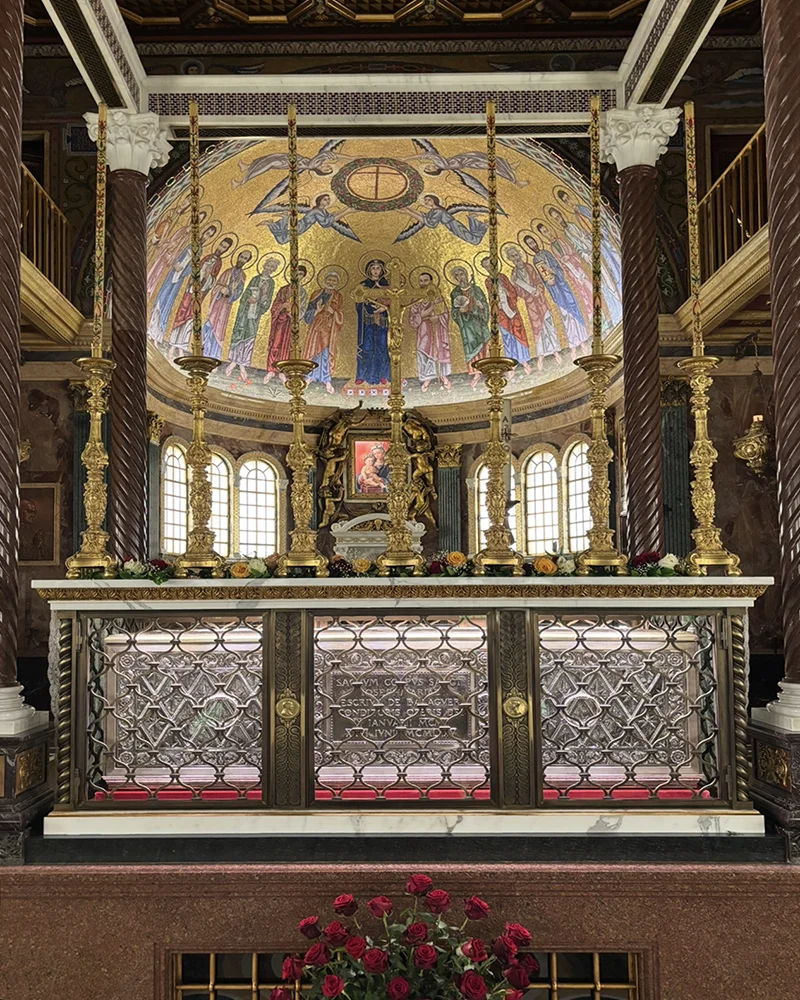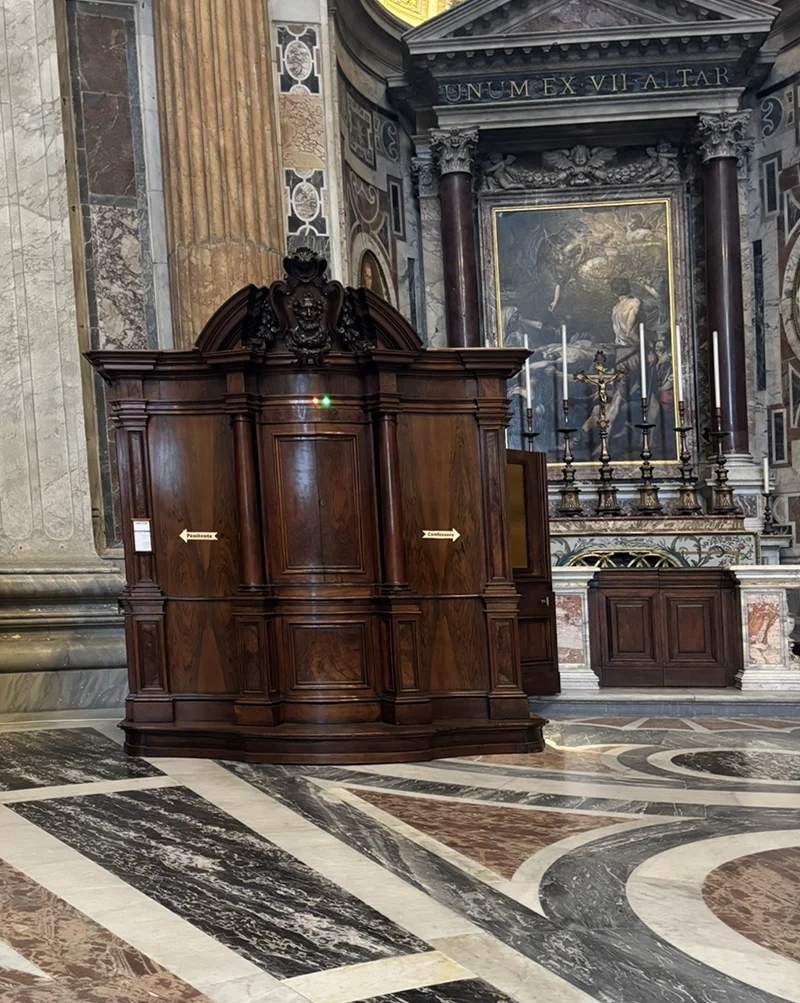Welcome to
massconfession.com
This website is dedicated to helping all continue to establish and grow their relationship with Jesus, reemphasizing the importance of actively practicing your faith by regularly attending Mass and Confession.
Why is it important to go to confession?
Joey – 13 years old (7th grade)

Why is the Mass of such central importance?
“The Second Vatican Council eloquently teaches that the Eucharist is the “source and summit of the Christian life”—which is to say, that from which authentic Christianity comes and toward which it tends. It is the alpha and the omega of the spiritual life, both the path and the goal of Christian discipleship. The Church Fathers consistently taught that the Eucharist is sustenance for eternal life. They meant that in the measure that we internalize the Body and Blood of Jesus, we are readied for life with him in the next world. Thomas Aquinas said that all of the other sacraments contain the virtus Christi (the power of Christ) but that the Eucharist contains ipse Christus (Christ himself)—and this would help to explain why St. Thomas could never make it through the Mass without shedding copious tears. It is precisely at the Mass that we are privileged to receive this incomparable gift. It is precisely at the Mass that we take in this indispensable sustenance. Without it, we starve to death spiritually.”
- Bishop Barron
What the Church strongly recommends, however, is that we go to Confession once a month.
This is just about enough for the Christian to follow an OK path to sanctity. Going to Confession in this frequency — whether or not one has committed mortal sin — can already help her or him to stay on track to holiness. Of course, this takes for granted that the person is also intensely striving to improve in other aspects of Christian life, such as in prayer, good works, apostolate, and especially, the Holy Mass.
But depending on one’s conscience, a Christian can always decide to go more frequently than once a month. Pope Francis did go to Confession every two weeks. St. John Paul II went every week. St. Josemaria Escriva even said sometimes he would go more than once a week, when he thought he needed it. It’s important to note that Confession isn’t just about having our sins forgiven, but also about receiving actual graces.
Please visit these additional websites:

News & Events
Evenings of Recollection for men:
Darien Center holds evenings of recollection for men to help us grow in our knowledge and love of the Catholic faith.
FIRST MONDAY of every month and the TUESDAY following the first Monday.
RECOLLECTION: 6:45pm – 8:45pm
WHERE: 7800 S Cass Ave.
If you have never been to a Recollection…
A Recollection is a program designed to help us converse with our Lord and come up with one or two resolutions to help us grow in virtue. Here is the format:
- A practical talk about a particular virtue, with helpful advice about how to live the virtue better. This is given in the living room.
- A meditation in the chapel by a priest in front of the Blessed Sacrament.
- A series of questions called an ‘examination of conscience’ is read aloud in the chapel. This is a good preparation for the sacrament of reconciliation.
- While people pray in the chapel you may go to the confessional for the sacrament of reconciliation. Sometimes there are two priests so you can go to confession at any time. Other times you have to wait for the priest to finish giving the meditation.
- Benediction, a blessing by the priest with the Blessed Sacrament.
Stay Connected
Please complete and submit the below form to receive alerts regarding new videos and content updates to the website.